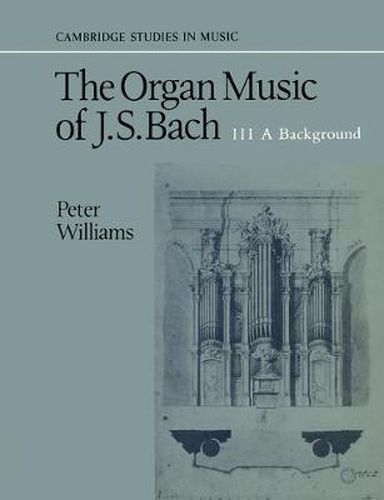Readings Newsletter
Become a Readings Member to make your shopping experience even easier.
Sign in or sign up for free!
You’re not far away from qualifying for FREE standard shipping within Australia
You’ve qualified for FREE standard shipping within Australia
The cart is loading…






This book, first published in 1984, is the third volume of Peter Williams’ important reference work, The Organ Music of J. S. Bach. In this volume, Peter Williams lays before the reader the salient points that serve as an appropriate bckground to the pieces: notes on the church services of the area in question (Thuringia - Saxony), the fitful tradition of recitals, the duties of organists, the composer’s indebtedness to former and contemporary styles in music, his knowledge of organs, the relevance (often over-valued today) of theorists, details of the instruments he was acquainted with and what can be assumed about the way they were registered and played. Throughout, the author has aimed to present a background to this music and its playing and has avoided stepping into areas of high conjecture, such as chronology or how specific pieces are to be played.
$9.00 standard shipping within Australia
FREE standard shipping within Australia for orders over $100.00
Express & International shipping calculated at checkout
This book, first published in 1984, is the third volume of Peter Williams’ important reference work, The Organ Music of J. S. Bach. In this volume, Peter Williams lays before the reader the salient points that serve as an appropriate bckground to the pieces: notes on the church services of the area in question (Thuringia - Saxony), the fitful tradition of recitals, the duties of organists, the composer’s indebtedness to former and contemporary styles in music, his knowledge of organs, the relevance (often over-valued today) of theorists, details of the instruments he was acquainted with and what can be assumed about the way they were registered and played. Throughout, the author has aimed to present a background to this music and its playing and has avoided stepping into areas of high conjecture, such as chronology or how specific pieces are to be played.